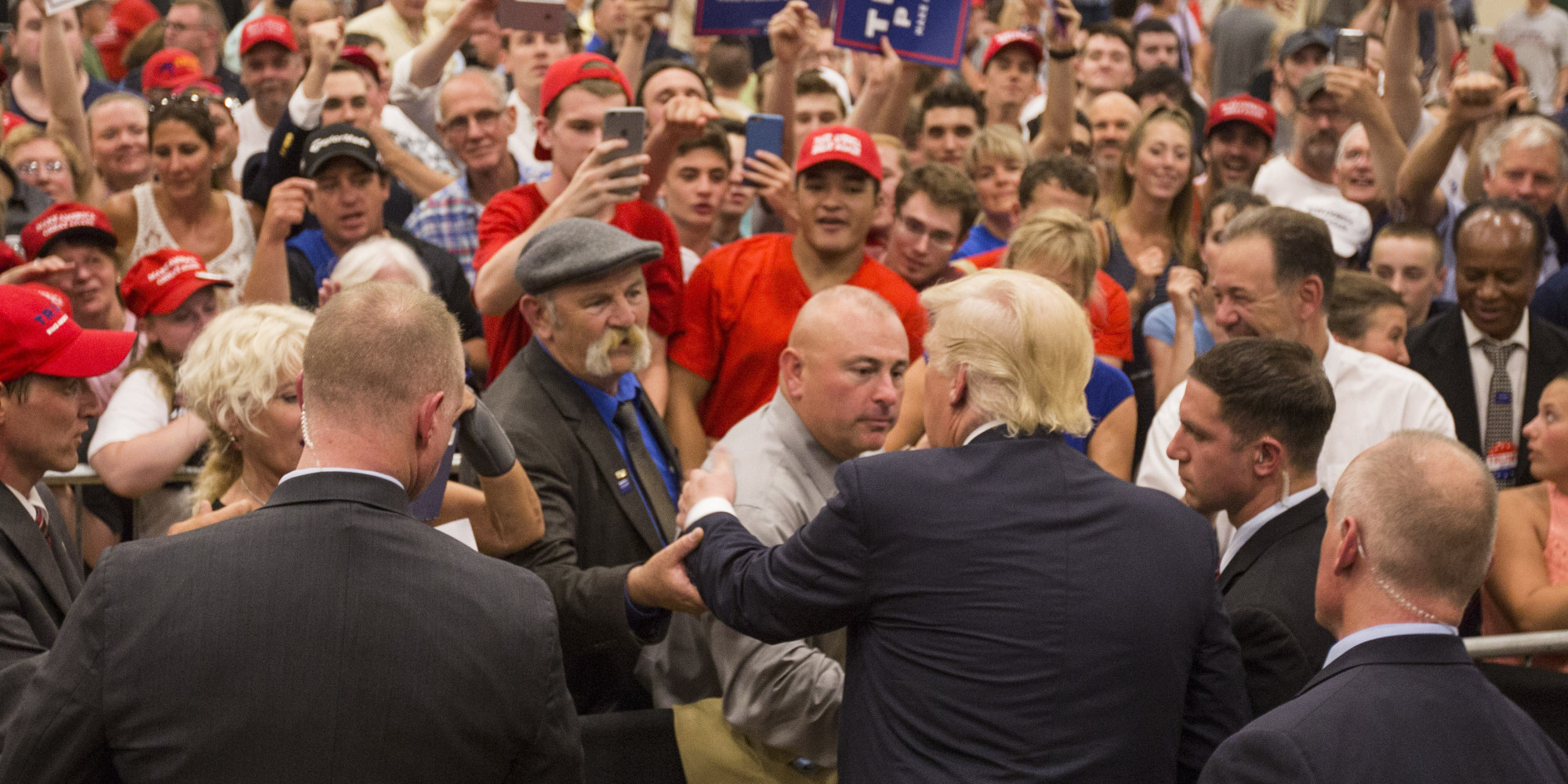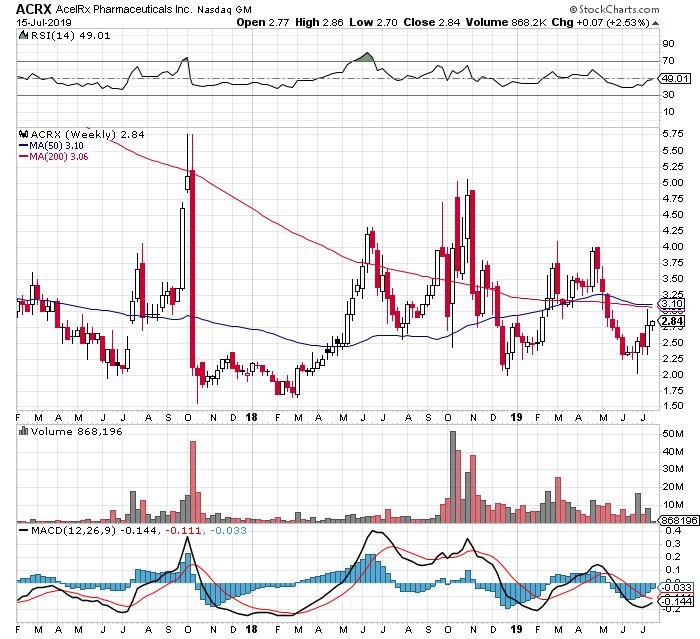Decoding Trump's Anger: A Look At His Trade Policies Against Europe

Table of Contents
The Roots of Trump's Trade Confrontation with Europe
Trump's confrontational approach to trade with Europe stemmed from a confluence of factors, primarily his "America First" ideology and specific grievances against European Union trade practices.
"America First" Ideology and its Impact on Trade
The core tenet of Trump's "America First" policy was a prioritization of American interests above all else, often at the expense of international cooperation and established alliances. This philosophy fundamentally reshaped US trade relations, particularly with traditional allies in Europe.
- Examples of "America First" rhetoric applied to trade: Trump frequently labeled trade deals with Europe as "unfair" and "one-sided," demanding renegotiation or withdrawal from agreements like the Transatlantic Trade and Investment Partnership (TTIP).
- Specific instances of criticism: He consistently criticized the perceived trade deficits with European nations, arguing that these were evidence of exploitation and unfair competition. His administration frequently used the term "unfair trade practices" to justify its actions.
- Details: This rhetoric often manifested in the imposition of tariffs and other trade restrictions, signaling a departure from decades of pursuing multilateral trade agreements and emphasizing bilateral deals prioritizing American interests. The perceived unfairness in existing trade deals formed the bedrock of his trade strategy.
Criticisms of the European Union's Trade Practices
Trump's administration voiced numerous criticisms against the European Union's trade practices, focusing on alleged protectionism and subsidies.
- Specific examples of EU trade practices criticized: These included agricultural subsidies, which Trump claimed gave European farmers an unfair advantage, and various regulatory barriers that hampered US exports to the EU market.
- Data and evidence: While the administration often presented anecdotal evidence, the WTO dispute over Airbus and Boeing subsidies (discussed below) provides a tangible example of the type of trade practices that fueled Trump's anger. Claims of protectionism often centered around non-tariff barriers and regulatory differences.
- Details: The perception of these practices as unfair fueled the administration's push for renegotiation of trade agreements and the imposition of retaliatory tariffs.
Key Trade Disputes During the Trump Administration
Several major trade disputes punctuated the Trump administration's relationship with Europe, significantly impacting transatlantic relations.
The Steel and Aluminum Tariffs
In 2018, the Trump administration imposed tariffs of 25% on steel and 10% on aluminum imports from the EU, citing national security concerns. The EU retaliated with tariffs on a range of US goods, escalating the conflict.
- Tariffs' percentage and affected sectors: The tariffs directly impacted the steel and aluminum industries in Europe, leading to job losses and production disruptions. The retaliatory tariffs affected sectors like agricultural products and motorcycles.
- Economic impact: Studies from various organizations showed varying degrees of negative impact on both US and European economies, with increased prices and reduced trade volume.
- Details: This dispute highlighted the interconnectedness of global trade and the potential for rapid escalation when protectionist measures are implemented.
The Airbus-Boeing Subsidy Dispute
This long-standing World Trade Organization (WTO) dispute concerning government subsidies provided to Airbus and Boeing significantly escalated under the Trump administration. Both sides imposed retaliatory tariffs on each other's goods.
- Key points of the dispute: The dispute centered on allegations that both the US and EU governments provided illegal subsidies to their respective aerospace giants, giving them unfair competitive advantages.
- Resulting tariffs: Both the US and EU imposed tariffs on billions of dollars worth of goods, impacting various sectors.
- Impact on the aerospace industry: The dispute created uncertainty and hampered collaboration within the aerospace industry, affecting both US and European manufacturers.
Other Trade Conflicts
Beyond steel, aluminum, and the Airbus-Boeing dispute, other areas of friction emerged between the Trump administration and Europe.
- Key trade conflicts: These included threatened tariffs on automobiles and ongoing disputes over digital services taxes, reflecting broader disagreements over the regulation of digital commerce.
- Short descriptions: The threatened auto tariffs sparked considerable concern within the European automotive industry, while the digital services tax debate highlighted the challenges of regulating multinational tech companies in a globalized economy.
- Impact of each conflict: Each conflict, however small, contributed to a broader sense of uncertainty and strained the already tense transatlantic relationship.
Consequences of Trump's Trade Policies on US-Europe Relations
Trump's trade policies had significant economic and geopolitical consequences for the US-Europe relationship.
Economic Impact
The economic repercussions of Trump's trade actions were multifaceted and far-reaching.
- Specific economic impacts: These included job losses in some sectors, increased prices for consumers due to tariffs, and trade diversion as businesses sought alternative suppliers outside the affected regions.
- Data and statistical analysis: Economic studies varied in their estimations of the precise impact, but all pointed toward a negative impact on overall trade volumes and economic growth, both in the US and Europe.
- Details: The uncertainty created by the unpredictable trade actions also hampered investment and economic planning.
Geopolitical Implications
The trade disputes extended beyond economic concerns, significantly damaging the transatlantic relationship.
- Weakening of alliances and increased global uncertainty: The confrontational approach strained the traditionally strong alliance between the US and Europe, creating uncertainty in the international order.
- Impact on international cooperation: The disputes undermined the multilateral trading system and reduced cooperation on various global challenges.
- Potential for future conflicts: The damage to trust and the erosion of established norms raise concerns about the potential for future conflicts, hindering future collaboration.
Conclusion: Understanding Trump's Legacy on US-Europe Trade
Trump's aggressive trade policies against Europe were rooted in his "America First" ideology and specific grievances against EU trade practices. The resulting trade disputes, including the steel and aluminum tariffs and the escalation of the Airbus-Boeing dispute, had significant economic and geopolitical consequences, damaging the transatlantic relationship and undermining international cooperation. Understanding the intricacies of Trump’s trade policies against Europe requires continued analysis. Dive deeper into this complex issue by [linking to relevant resources, such as reports from the Peterson Institute for International Economics or the Congressional Research Service].

Featured Posts
-
 Mamma Mia The Hottest New Ferrari Hot Wheels Sets
May 25, 2025
Mamma Mia The Hottest New Ferrari Hot Wheels Sets
May 25, 2025 -
 Discover The Best New R And B Leon Thomas And Flos Latest Hits
May 25, 2025
Discover The Best New R And B Leon Thomas And Flos Latest Hits
May 25, 2025 -
 Toto Wolffs Latest Comments Hint At George Russells Mercedes Future
May 25, 2025
Toto Wolffs Latest Comments Hint At George Russells Mercedes Future
May 25, 2025 -
 The Role Of Memory In Kazuo Ishiguros Fiction A Critical Analysis
May 25, 2025
The Role Of Memory In Kazuo Ishiguros Fiction A Critical Analysis
May 25, 2025 -
 Net Asset Value Nav Of The Amundi Dow Jones Industrial Average Ucits Etf
May 25, 2025
Net Asset Value Nav Of The Amundi Dow Jones Industrial Average Ucits Etf
May 25, 2025
